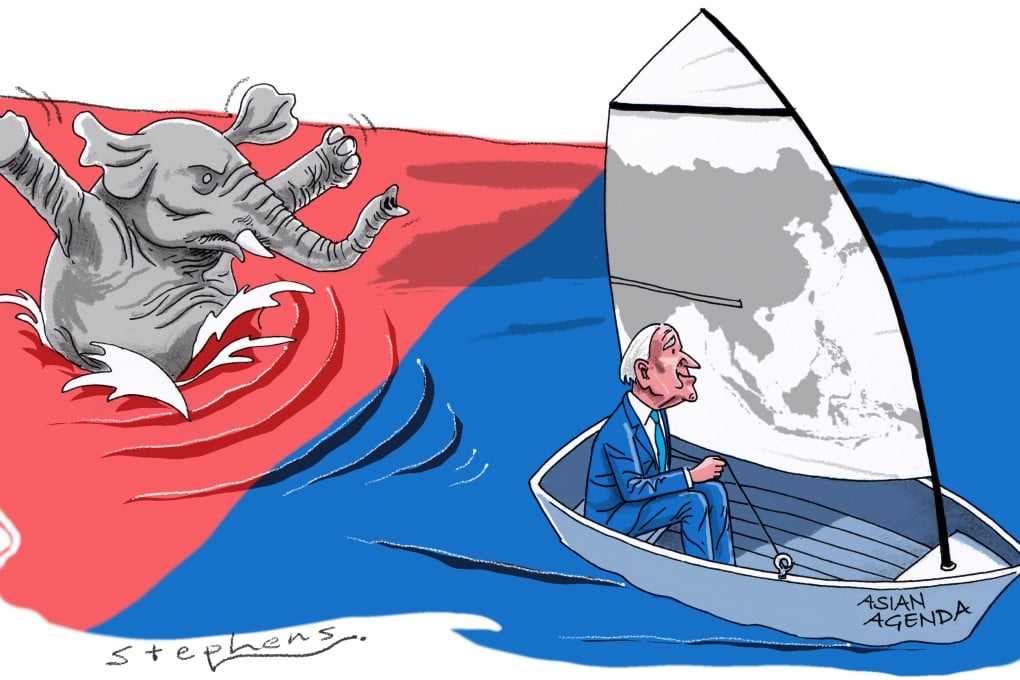Advertisement
Opinion | Joe Biden’s Asia agenda unlikely to change even as midterm election gives House to Republicans
- Without control of both the House and Senate, Republicans will struggle to push Biden further to the right on China-related policies
- Clear, sustained positions from Republicans could be difficult given internal divisions over policy and whether to support Donald Trump’s run for president
Reading Time:4 minutes
Why you can trust SCMP
3

Vote counting for the US midterm elections is finally coming to an end. The usually staid event defied the pundits and pollsters yet again. A Republican “red wave” never materialised and election deniers did not take over. Donald Trump’s ambitions for another run at the White House were weakened after major candidates he backed lost.
The net result of the vote is a split Congress, with Republicans taking control of the House of Representatives with a slim majority and Democrats holding the Senate. This presents a mixed bag for US policy towards Asia in the next two years. Without control of both houses, Republicans can’t entirely force US President Joe Biden further to the right on China-related policies.
The distance between what the Biden administration has done and what Republicans have wanted has narrowed. That includes keeping Trump-era tariffs, sanctioning Chinese officials, restricting technology transfer, highlighting human rights issues, supporting the status quo in Taiwan and generally promoting alliances to counter China’s greater economic and military reach.
Advertisement
Despite Biden and President Xi Jinping’s pleasantries, handshakes and photo ops on the sidelines of the recent Group of 20 meeting in Bali, none of those policies are likely to change. Their meeting potentially resets the tone of dialogue between the world’s largest economies, though, spreading a nearly audible sigh of relief throughout the region.
Easing the rhetoric is certainly welcome. That will, at a minimum, delay talk of potential war over Taiwan that had become a not-uncommon topic in US and China circles.
Advertisement
That is if a Republican-controlled House doesn’t decide to raise Taiwan’s stature through potential legislation. They are likely to make a show of it, but without Senate control it is unlikely they will make much headway. They could have pushed their agenda much further along had they won a sizeable majority in the Senate, even overriding a presidential veto, but they did not have the votes.
Advertisement
Select Voice
Choose your listening speed
Get through articles 2x faster
1.25x
250 WPM
Slow
Average
Fast
1.25x
